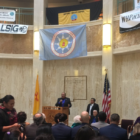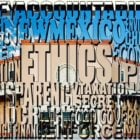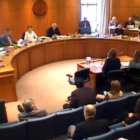Fathom
Gov. Susana Martinez refuses to answer media’s questions
|
New Mexico In Depth attempted to ask Gov. Susana Martinez about her reaction to the uncertainty in Washington surrounding the Affordable Care Act, also known as Obamacare. President Donald Trump and the Republican-controlled Congress have made it a priority to repeal major provisions. Any action from Washington would ripple through New Mexico. Early in her term Martinez was one of the few Republican governors across the nation to agree to expand the Medicaid program, which was a major provision of the ACA. Her decision resulted in around 250,000 additional New Mexicans getting health insurance.







